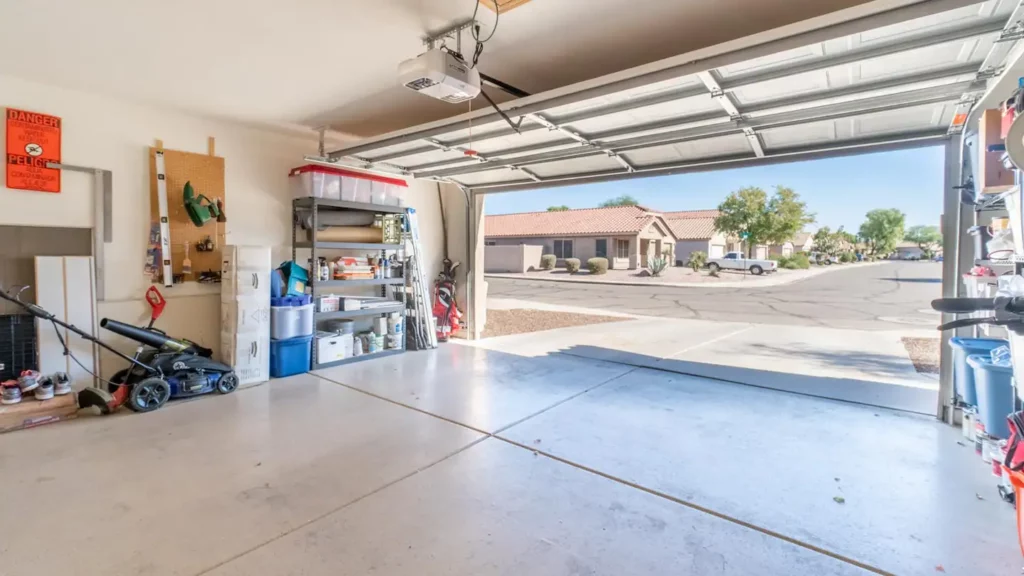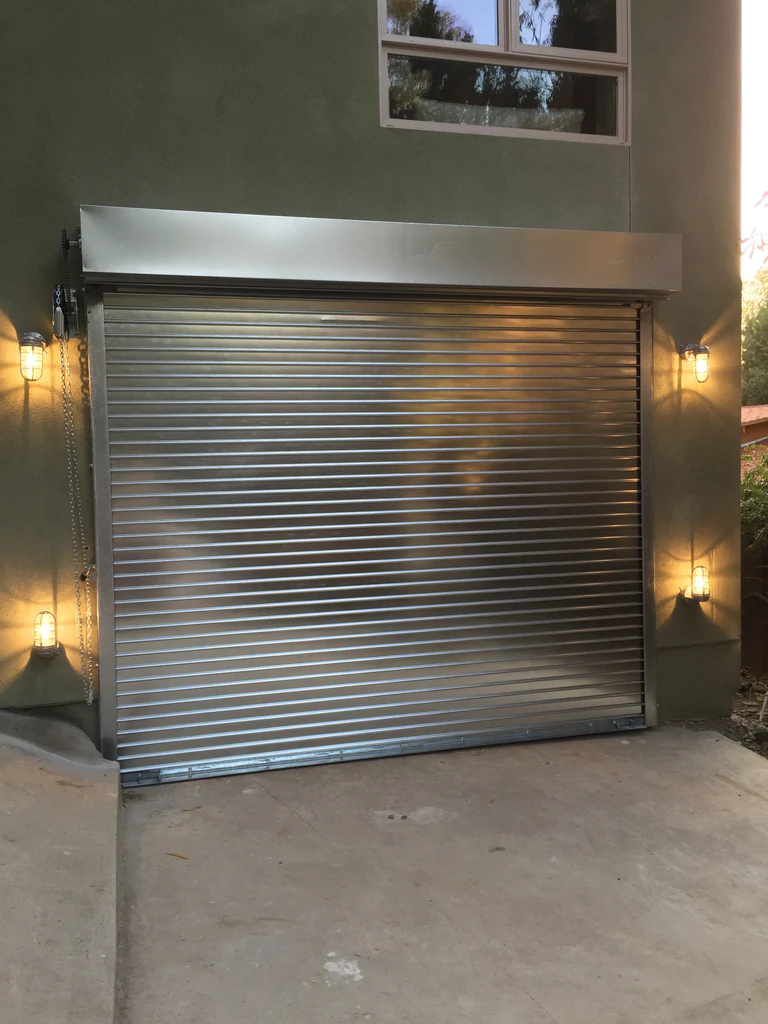Garages are a quintessential part of our American homes. And these annexes are not for parking cars only. According to a statistic, 55% of Americans spend 1-2 hours each week doing hobbies and other activities in the garage. This intense use of garages leads us to the question: should you insulate your garage? And what are the pros and cons of insulating your garage? [1]
If you live in a suburb or small town, your house probably has a garage. Are you interested in home improvement projects? Then you are probably wondering about the pros and cons of insulating your garage.
This post will present the advantages and disadvantages of insulating your garage. In the end, we have included a short section about the most popular insulation materials.
Short answer, pros of insulating garage
- Transforming the garage into a living space
- Cutting down on energy expenses
- Reducing moisture
- Ensuring sound insulation
- Keeping pests away
- Protecting your garage from fires
- Preventing carbon monoxide poisoning
- Having fun while upgrading your home
The downsides of insulating your garage are fewer but do exist. The biggest one is the investment taking years to recoup. You will also have to consider the air conditioning of your garage, which should be separate.
Insulating your garage: the pros
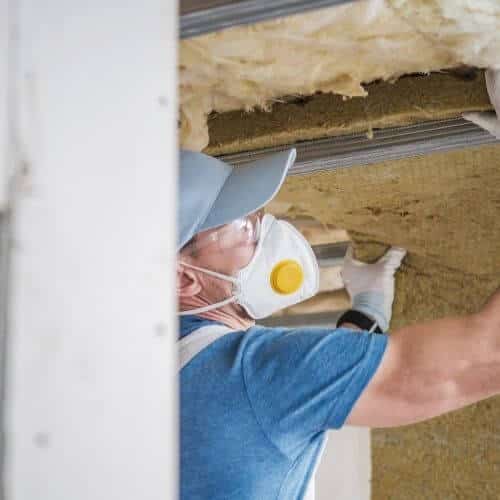
Should you insulate your garage? Yes, if the following benefits of garage insulation are essential to you:
- Using the garage as an extension of your home
Is your house insulated? The most likely answer is yes. Insulation increases energy efficiency and protects your home from mold.
Do you want to convert your garage to an extension of your home? Such as a gym, a home cinema or a guest room? Under these circumstances, insulating your garage is vital as it ensures your comfort while using it.
- Saving on energy bills
Maintaining a constant temperature level in your garage also helps with reducing heating and air conditioning costs. Most people add insulation to their homes to help cut down their energy bills. Turning a heater on in an uninsulated garage that you are using as a workspace can be pretty expensive.
- Cutting down on moisture and condensation in your garage
Aside from trapping heat, insulation keeps moisture out as well. An uninsulated room is at risk of developing moisture problems. Even if you use your garage as storage space only, you will notice that moisture is very harmful. From electronics to seasonal clothing, many items can be ruined by water. Damp clothes and Christmas decorations will develop mold and a bad smell.
- Providing sound insulation
Insulation helps with regulating temperature but also with keeping noises inside. For example, is the garage being used for play or music rehearsals for your kids? Or do you use power tools inside? Do you want to conduct your activities at any time of the day or night without disturbing family members and neighbors? Insulation will help to solve this problem, too!
- Can help with fireproofing
Garage fires are dangerous because there are all kinds of items inside that can fuel the fire. Another cause is that homeowners tend to overlook garage supervision while focusing more on other rooms. For these reasons, garage fires can be severe and spread over large areas, causing considerable damage.
Insulation will not prevent a fire, but at least it will contain it in a limited area. In addition, many insulation materials have fire retardant properties, adding an extra level of fire protection for your home.
- Keeps insects away from your garage
Garages that are not insulated can have small holes in their walls or joints. Air is not the only thing that can pass through those areas. Insects can represent a significant problem when your garage is not protected. Garage insulation will make it more difficult for insects to get in.
- Avoiding carbon monoxide poisoning in your home
Many people start their cars in their garages, producing the deadly gas called carbon monoxide. Suppose something happens and the car engine is running for a long time in your garage. The carbon monoxide can seep into your home, causing potentially lethal harm to you and your family. Garage insulation prevents gases produced in the garage from escaping into your home.
- Representing a fun DIY project
Are you one of those people who enjoy working around their homes? When you start a new home improvement project, do you feel more energetic and motivated? Insulating your garage can provide a pleasant occupation for at least several days. It’s more fun than figuring out issues such as low water pressure on well or rats chewing through PEX pipes.
Insulating your garage: the cons
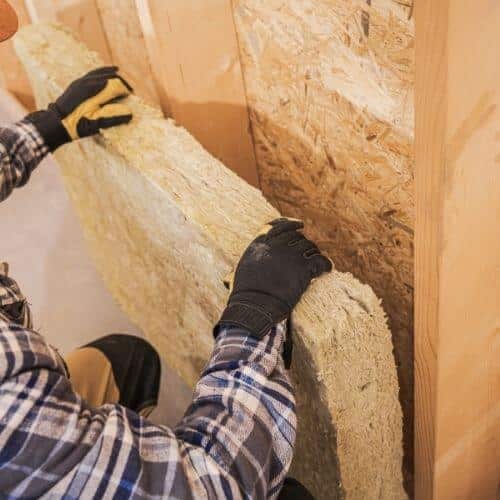
Like any restoration project or alteration, you make to your home, insulating your garage comes with its share of drawbacks. Keep on reading and think how much the following cons weigh when it comes to making a decision:
- Can be expensive
Insulation experts estimate that the costs of this project range anywhere from $3500 to $8000. The final price depends on the size of the garage and the thickness of the insulation. Only you can decide if you want to assign financial resources to this project. The best is to pay for insulation if an improved garage brings you significant advantages. [2]
- Problems related to the garage door
When you add insulation to a finished garage, some things could go wrong. For instance, the door may not close properly. Moreover, a low-quality door can spoil the effects of your insulation. Low rating metal garage doors can have air gaps and holes. If you decide to insulate your garage, you may have to change the door and replace it with a quality-made one.
You can avoid garage door insulation temperature difference by using weatherstripping to close the gap between walls and the door. Measure carefully to ensure a perfect fit.
- Can affect the aspect of your garage
Obtaining a pleasant aspect of your finished garage insulation can be rather expensive. Exposed insulation enables you to save money but is unsightly. Do you want to make the space more aesthetically pleasing? You will have to add a layer of drywall, plaster, or wood, which costs more money.
- It can be dangerous if the insulation is not fire-rated
Insulation could be dangerous if it is not made from a fire-rated material. Check the fire rating of the insulation you are considering. You will be putting yourself and others at risk by opting for materials that do not have fire-retardant properties.
- Not worth the effort if you don’t use it
Do you use your garage to park your car there? Do you open and close the garage door several times a day? There is little reward in insulating the garage. When the door is open several times a day, the effect of the insulation is lost. Additionally, if you don’t store anything in your garage, there is no reason to protect stuff from cold and moisture.
- Can be time-consuming
The desire to improve your home no matter what can consume your income and your free time. Please don’t engage in a DIY project unless you benefit from it. Better invest your time in travel, hobbies, education, etc.
- Having to install separate air conditioning
Connecting your garage to the central HVAC system is possible but not advisable. Garage air is lower quality, and you don’t want it to go back into your home unless the system has expensive filters.
On the other hand, having separate heating and cooling for your garage can be cost-prohibitive. Your effort to insulate the garage may not produce the best results without having temperature control through an HVAC system.
When should you insulate your garage?

We have presented the pros and cons of insulating the garage to assist you with making an informed decision.
The pros and cons of insulating your garage can have different effects on homeowners, depending on the destination of their garage.
In short, insulating your garage is a priority when:
- You are using your garage for other purposes than parking your car;
- You have the money for a project that is not essential – insulation is generally a good idea;
- You live in an area prone to wildfires, as unfinished garages are more prone to catching fire.
When is it better not to insulate your garage?
Insulating your garage is never a terrible idea. However, insulating your garage can be somewhat unnecessary. So, people ask: does it make sense to insulate an unheated garage? And is it worth insulating a detached garage?
Again, what you should be looking at is the destination of the garage. You can opt not to insulate if you use the garage for car parking only. Additionally, keeping your insulated garage cool can be quite costly if you live in a warm climate. Your vehicle radiates heat, and air conditioning will have to work intensely to keep the garage temperature down.
Going back to the two questions above, it does not matter if your garage is detached. If you use it as a living or activity space, the best is to have insulation. And what if your garage is unheated? If you live in a cold climate, your garage is better off with insulation, even if it is not heated.
In conclusion, there are just a few situations when garage insulation is not helpful or does more harm than good.
What kind of insulation should you use?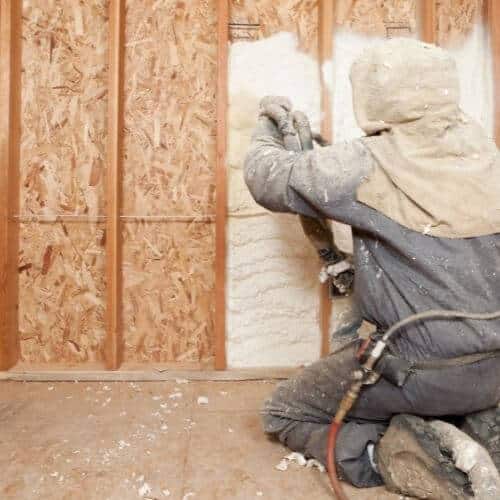
There are multiple types of insulation you can use for your garage, each with its pros and cons:
- Fiberglass insulation
Available in blankets, fiberglass offers advantages like low cost and easy handling and installation. However, be careful when installing it because fiberglass irritates skin, eyes, and lungs. You will need to cover it with drywall or plywood or use the encapsulated type.
- Cellulose insulation
This type of loose-fill insulation is made from recycled newspapers and treated with fire retardant substances. It is environmentally friendly and insect resistant but more costly. Cellulose requires drywall finishing.
- Rigid foam insulation
This material, similar to Styrofoam, can be cut into pieces that fit most spaces, has a high R-value, and cancels noises. The downsides are pests being able to tunnel through it and possibly not complying with air-venting codes.
- Spray foam insulation
Costly and installed by professionals, this insulation makes sense if you want to transform the garage into a living space. Spray foam insulation has a high R-value and is mold- and insect-resistant.
- Garage door insulation
Don’t forget about the garage door, either. Insulating the garage door is vital to maintain a constant temperature inside. Reflectix sheets are a standard option for insulating garage doors. This product will add stability to the door, reduce noise levels, and increase temperatures by 12 to 20 degrees. [3]
Bottom line
Have you weighed the pros and cons of insulating your garage?
In conclusion, insulating your garage is rarely a bad idea.
Should you insulate your garage? Yes, if you want to convert it to a living space, such as an office, a workspace, or a gym. Yes, if you live in an area prone to wildfire. And yes, if the garage is a noisy area of your home and you want to avoid disturbing people.
There is one instance when insulating a garage is not such a good idea. And that is when you live in a warm climate and want to use air conditioning in your garage. Cooling down an area heated by your vehicle will add to your monthly energy bills.

Michael Davis is a heating & plumbing expert who currently works as independent contractor in SC. He also writes for Plumbertip.
For almost 10 years he worked on various plumbing tasks across South Carolina.
